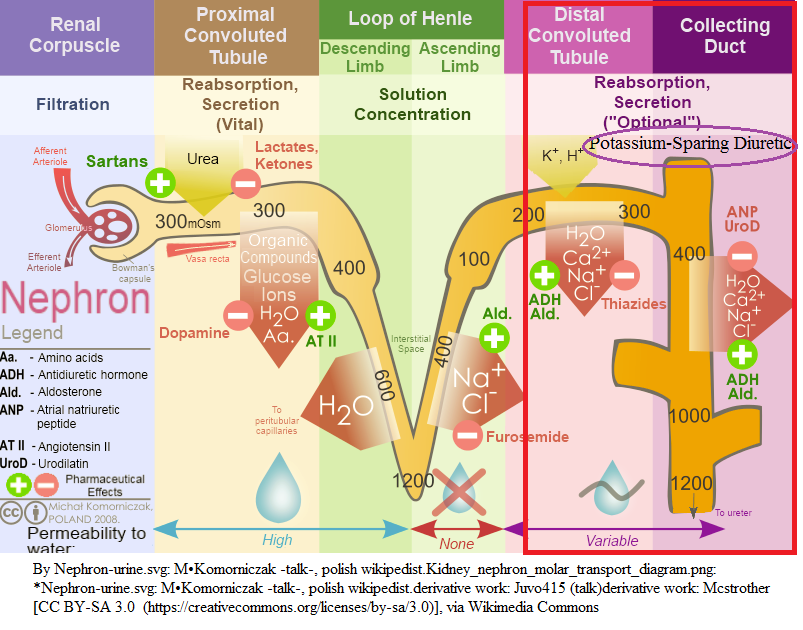Anesthesia Pharmacology: Renal Pharmacology Practice Questions
Choose the correct answer for each question.
Clinical use(s) of amiloride:
- Management of lithium-induced nephrogenic diabetes insipidus..
- Improvement of cystic fibrosis symptoms due to enhanced mucociliary clearance.
- Both
- Neither
Most serious (dangerous) adverse effect of "K+-sparing diuretics", i.e. renal Na+ channel blockers is hyperkalemia.
- True
- False
Circumstance(s) in which triamterene and amiloride would likely be contraindicated:
- Patients receiving angiotensin-converting enzyme inhibitors.
- Patients with renal failure
- Both
- Neither
Contraindication(s) of amiloride or triamterene administration:
- Hyperkalemic patients
- Patients receiving K+
supplementation
- Both
- Neither
K+ electrolyte monitoring is essential for patients receiving agent such as triamterene or amiloride:
- True
- False
Megaloblastosis and cirrhotic patients:
- In this setting megaloblastosis is likely secondary to folic acid deficiency.
- Triamterene is a week folic acid blocker, thus increasing the possibility of this adverse effect (megaloblastosis)
- Both
- Neither
Adverse effect(s associated with triamterene:
- Renal stones
- Interstitial nephritis
- Reduced glucose tolerance
- A & B
- B & C
- A & C
- A, B & C
Most common adverse effects due to amiloride administration include:
- Headache
- Diarrhea
- Nausea and vomiting
- A & B
- B & C
- A & C
- A, B & C
Most common adverse effects due to triamterene include:
- Dizziness
- Nausea and vomiting
- Leg cramps
- A & B
- B & C
- A & C
- A, B & C
Mineralocorticoids antagonists may be useful in reducing K+ (and H+) excretion due to blockade of specific mineralocorticoids receptors.
- True
- False
